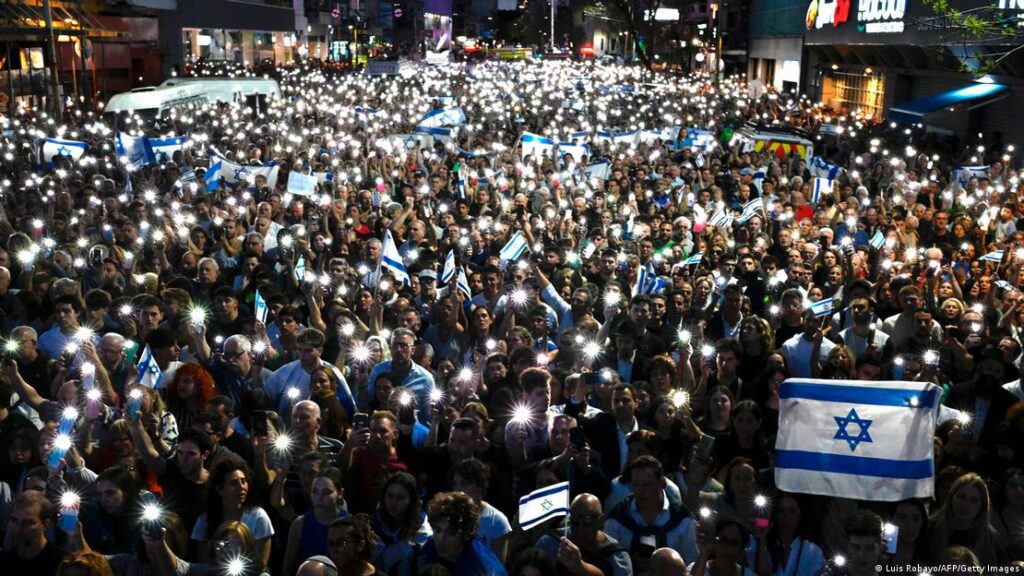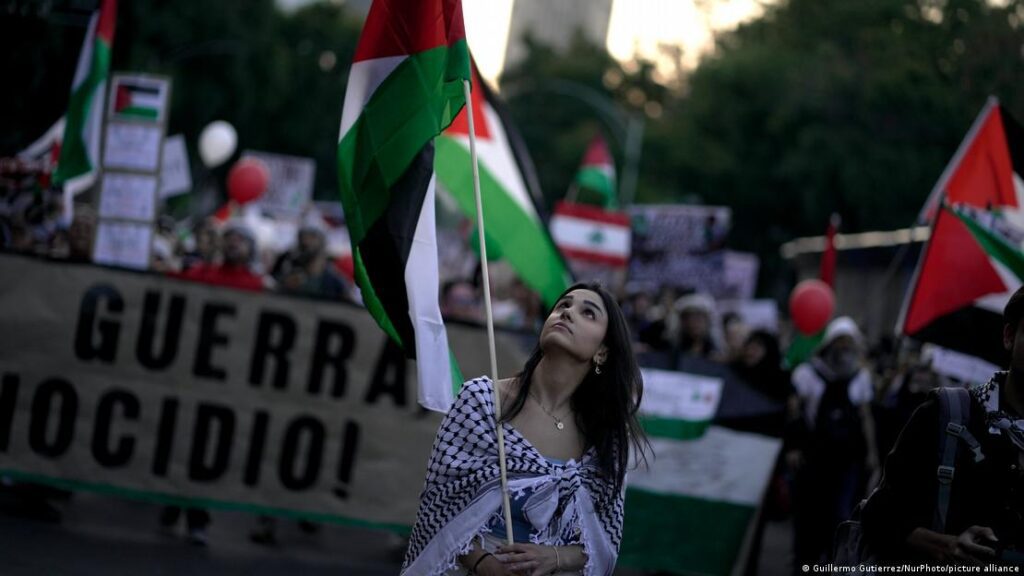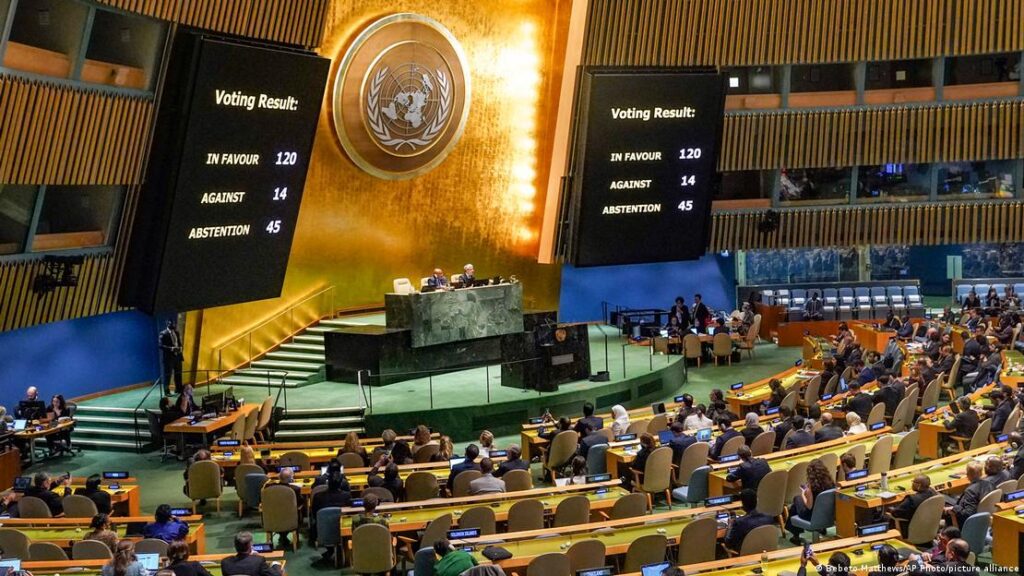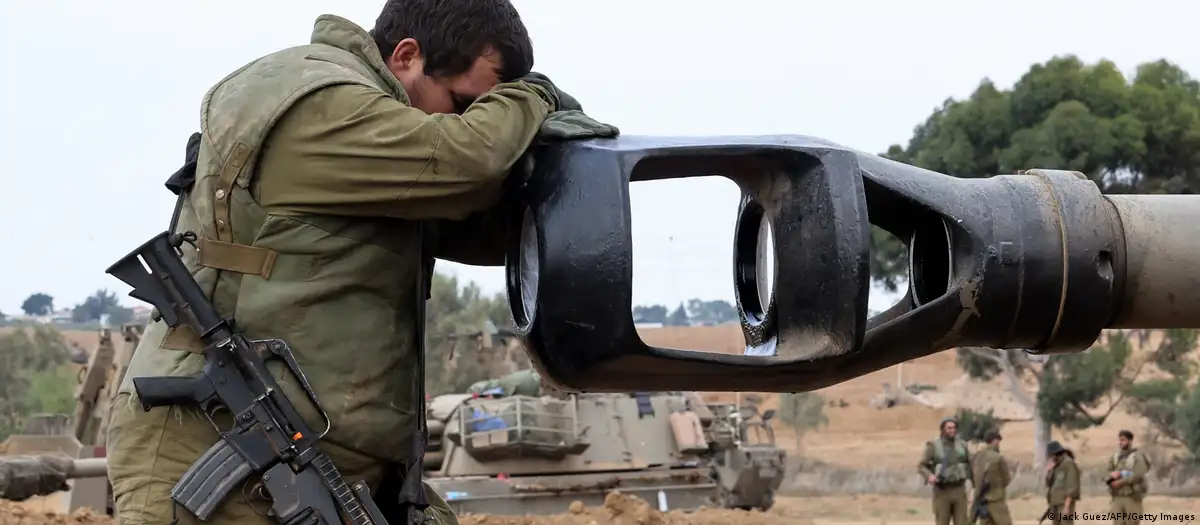Broad condemnation of Hamas’ terrorist attacks, solidarity with the Palestinian cause or general repudiation of the violence: check out how the countries of the region have positioned themselves.
(DW) The war between Israel and Hamas, unleashed after the terrorist attacks on October 7, and the Israeli government’s subsequent response, have shaken up diplomatic relations in Latin America. Although the majority of governments in the region initially condemned the attacks on Israel, the reactions of each country have nuances and differences. But one thing is certain: no one was indifferent.
Here’s how each Latin American country has positioned itself on the conflict:
Argentina: country with the largest Jewish community in the region
Argentina is home to more than 300,000 Jews. Nine Argentinians died in the October 7th attacks in Israel and, since then, another 21 remain missing. President Alberto Fernandez expressed his “strong condemnation of the brutal terrorist attack perpetrated by Hamas in the Gaza Strip against the State of Israel”, which he has reiterated on several occasions.
A statement on November 2 reinforced the condemnation of the terrorist attacks and recognized Israel’s right to self-defense. However, the country’s Foreign Ministry added that “in any case, nothing justifies the violation of international human rights and the obligation to protect the civilian population” and also condemned an Israeli attack on the Jabalia refugee camp.
In reaction, the Delegation of Israeli Associations of Argentina (DAIA) repudiated the ministry’s allegations and called on the Buenos Aires government to differentiate itself from the “pusillanimous positions of some countries in the region that have decided to break relations with Israel and condemn its legitimate right to defend itself”.

Bolivia: the toughest stance against Israel
Initially, the Bolivian government published a statement calling for a de-escalation of violence without openly condemning the terrorist attacks. But its stance hardened until it broke off diplomatic relations with Israel, which in turn accused the current administration of President Luis Arce of “surrendering to terrorism” and aligning itself “with the terrorist organization Hamas”.
The terrorist group Hamas itself praised the move. “We strongly commend the courageous stance adopted by the Bolivian government in severing relations with the Zionist entity,” said a statement from the Palestinian group, quoted by several media outlets. Former president Evo Morales, leader of the ruling Movement for Socialism (MAS), considered that the measure would not be enough and called on the Bolivian government to declare Israel a “terrorist state” and to file “a complaint with the International Criminal Court”.
Chile: the largest Palestinian community
With half a million people, the Palestinian community in Chile is the largest outside Arab countries. The country has one dead and one missing in the Hamas attacks, which it condemned from the start. The Chilean government also called on the parties to avoid an escalation of the conflict that would cause further damage and suffering to the civilian population. The country asked for the return of its ambassador to Israel for consultations, and described the Israeli bombings as “collective punishment of the Palestinian civilian population in Gaza”.
Colombia: Petro’s strong criticism of Israel
Although the Colombian government initially condemned “in the strongest terms the terrorism and attacks against civilians” in Israel, it later softened its statement to refer only to the impacts on the civilian population. In his statements, President Gustavo Petro insisted that “the Palestinian state be fully recognized”. He also met with the Palestinian ambassador to Colombia, Raouf Almalki. In posts on social media, the president caused controversy by comparing Israel’s response to the Holocaust and the Second World War.
Israel has threatened to suspend all exports of security technology to Colombia and to stop providing aid to the country in its fight against armed groups. Petro, for his part, threatened to suspend trade relations with Israel altogether. Colombia later summoned its ambassador to the country for consultations.
Costa Rica: strong condemnation of the attacks
Costa Rica’s Foreign Ministry was one of the first to issue an official statement strongly condemning what it called “atrocious and deplorable terrorist attacks by Hamas on Israel” and calling for the immediate release of the hostages.
Cuba: support for the Palestinians
In a statement on October 7, the Havana government expressed its “grave concern” at the escalation of violence between Israel and Palestine, which it described as “the consequence of 75 years of permanent violation of the inalienable rights of the Palestinian people”. He also called for a two-state solution in the region.
A week later, in a statement issued by the Ministry of Foreign Affairs, also published in Arabic, the Cuban government referred to the bombings in Gaza without mentioning the Hamas terrorist attacks and called for the “search for a rapid solution through negotiation”.
Ecuador: two-state solution
The country’s Foreign Ministry immediately condemned the “acts of terror experienced in Israel” and called for peace and dialog. It later reiterated its condemnation in a statement that also expressed “deep concern” about the Israeli bombing of the Jabalia refugee camp and affirmed that the exercise of self-defense should always be done in accordance with the rules of international law. Ecuador is generally aligned with the United Nations resolutions on the situation between Israel and Palestine and defends the two-state solution following the “borders recognized in 1967”.
El Salvador: Bukele’s strong stance
Palestinian President Nayib Bukele’s stance against Hamas has attracted attention. In a message written in English, he drew a parallel between the Islamic organization’s terrorism and that of the gangs known as “maras” in El Salvador.
“Anyone who supports the Palestinian cause would be making a big mistake to ally themselves with these criminals. It would be as if we Salvadorans had sided with the MS13 terrorists, just because we share ancestry or nationality,” he said in reference to the “Mara Salvatrucha” group, considered in El Salvador to be not only a criminal gang, but a terrorist group.
Guatemala: unrestricted support for Israel
Guatemala has close relations with Israel, both historical and current. Guatemala was the second country, after the United States, to vote in the United Nations in favor of the creation of the State of Israel in 1947 (33 nations out of the 57 that made up the UN at the time). Along with Paraguay, it was one of only two Latin American countries to vote against a recent UN Assembly resolution calling, at the proposal of Arab countries, for a “humanitarian truce” in the Gaza Strip.
From the outset, President Alejandro Giammattei expressed his support for Israel on social media, in English and Spanish. Guatemala, which has had diplomatic representation in Israel since 1956, maintains several cooperation programs with MASHAV (the international cooperation department of the Israeli Ministry of Foreign Affairs) in areas such as tourism, investment, academic cooperation, technology, health and security. In addition, under the previous president, it was the second Latin American country to open an embassy in Jerusalem.
Honduras: respect for international human rights
Xiomara Castro’s government condemned the Hamas attacks. With regard to the bombardment of Gaza, Honduras adhered to the majority position in the United Nations, expressed in the latest resolution, which reaffirms the obligation to respect international human rights in all circumstances and emphasizes the catastrophic humanitarian situation in the Gaza Strip and its consequences for the civilian population, a view reverberated by the Honduran Ministry of Foreign Affairs. The country has also recalled its ambassador to Israel for consultations.
Mexico: seeking equidistance
A statement from the country’s Foreign Ministry the day after the Hamas attacks said: “Mexico’s position is clear (…) faithful to the constitutional principle of the peaceful resolution of conflicts”. Two Mexicans are among the Hamas hostages and the government has attempted direct contact with the terrorist group to promote their release. The declaration also recognized Israel’s right to self-defense, but condemned “the use of force, regardless of who it comes from” and advocated a “comprehensive and definitive solution to the conflict, under the premise of two states”.
President Andrés Manuel López Obrador limited himself to insisting that “we don’t want a war” and condemned the use of force against civilians. He repeatedly avoided “taking sides”, arguing that such an attitude could make Mexico an agent in the search for a peaceful solution.
“We would appreciate it if the Mexican government could consider a position that strongly condemns the barbaric acts perpetrated by the terrorist organization Hamas,” the Israeli embassy in Mexico said in a statement, reacting to the president’s statements at his first press conference after the October 7 attacks.

Nicaragua: solidarity with the Palestinians
Daniel Ortega’s regime vehemently condemned the worsening of the Israeli-Palestinian conflict in a statement on October 7, saying that it was “continually worsening in the face of the arrogance, blindness, incomprehension and inaction of the international community, and particularly the United Nations”. The announcement made no reference to Hamas attacks. The government also stated that it was “always in solidarity with the Palestinian cause” and stressed that the problem would be the non-recognition of the Palestinian state.
Panama: firm condemnation of attacks
Panama, which saw the death of a citizen in the Hamas terrorist attacks, condemned the group’s actions from the outset. President Nito Cortizo expressed solidarity with the Israeli people and repudiated all forms of violence.
Paraguay: vote in favor of Israel
Along with Guatemala, Paraguay was the only country in the region to vote against the UN resolution calling for a humanitarian ceasefire, proposed by Jordan. The country’s support for Israel, however, has had its ups and downs: in 2018, the government of Horacio Cartes announced the transfer of the embassy in Israel to Jerusalem at the end of his term, a move that was reversed by his successor three months later. Two Paraguayans were among those killed in the Hamas attacks, and two others are still missing.
Peru: three Peruvians killed in “spiral of violence”
Peru initially condemned the Hamas attacks, but recently also repudiated Israel’s response. In a statement, the Ministry of Foreign Affairs regretted that a spiral of violence and an escalation of the conflict in the Middle East had been unleashed, resulting in numerous deaths, including three Peruvian citizens.
Uruguay: absolute rejection of terrorism
The country’s Foreign Ministry condemned the attacks from the outset and said it “reaffirms its absolute rejection of terrorism and its commitment to the security of Israel”. President Luis Lacalle Pou’s statements were in the same vein. There were no Uruguayan victims in the attacks, but the country confirmed that a 29-year-old Uruguayan-Israeli woman was kidnapped in the Nir Oz kibbutz and is being held hostage.
Venezuela: pro-Palestinian Chavism
Along with Nicaragua and Cuba, Venezuela is among the only three Latin American countries that have not expressly condemned Hamas’ terrorist attacks on October 7. In a statement that day, the government called for “genuine negotiations” and expressed its “deep concern” about the situation, as well as stating that the escalation of violence was the result of the “impossibility of the Palestinian people finding a space in multilateral international legality to assert their historic rights”. President Nicolás Maduro, whose legitimacy is widely questioned, even spoke of “genocide” and “apartheid”.

What about Brazil?
Brazil has the second largest Jewish community in Latin America, after Argentina, with more than 100,000 members. In addition, the Hamas terrorist attacks left three Brazilians among the victims, as well as a wounded man who recovered and a person who is still missing. President Luiz Inácio Lula da Silva condemned the attacks, as did the Ministry of Foreign Affairs, which from the outset called for “maximum moderation” on all sides.
At the time of the attacks, Brazil held the rotating presidency of the UN Security Council and drafted a ceasefire proposal for the region, advocating the opening of diplomatic corridors in Gaza and condemning Hamas’ attacks on Israel. The proposal was vetoed by the US, and the country ended its term as president of the council on October 31.
In addition to repudiating the Hamas attacks on October 7, calling them “acts of madness and terrorism”, Lula also said: “It’s not because Hamas committed a terrorist act against Israel that Israel has to kill millions of innocent people”.
